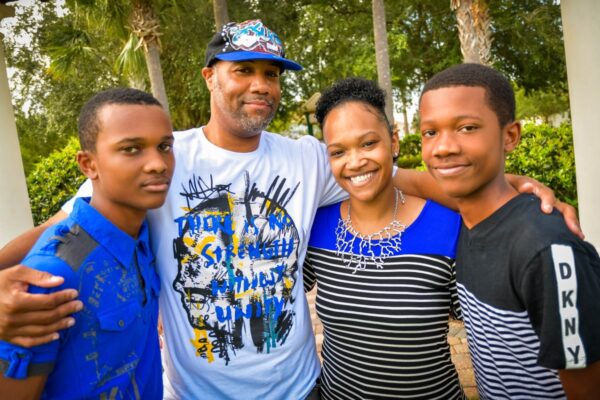The Black Resilience Fund has a new goal of helping Black families reach their financial goals. Since it launched in June 2020, the program, backed by the nonprofit Brown Hope, has raised over $2.6 million to support Black communities in Portland, Oregon. Thousands of local residents stepped in to offer emergency relief in the wake of George Floyd and the fight against COVID-19. However, their latest initiative will support 25 families in Multnomah County with immediate relief.

“We’ve accomplished so much since our founding in 2020, demonstrating the power of hope and action by building community and showing up directly for Black Portlanders,” as stated on their organization website. “And we’re not done. There are many challenges ahead, shaped by a two years of heartache and uncertainty, in addition to generations of unresolved injustice.”
Continuing the Work
According to local news station KGW8, the Black Resilience Fund chose 25 applicants — out of over 11,000 — for their three-year guaranteed income program. For the next three years, each individual will receive $2,000 a month, which Brown Hope CEO Cameron Whitten calls “direct-cash assurance.”
“Black Resilience Fund is so grateful to have been community funded since Day 1. We are both raising money from the community and giving money back into the community, and so that is why we care so much about direct-cash assistance,” Whitten told the outlet at the group’s first gathering. “No bureaucracy, no red tape, full trust that Black families know what they need to do to accomplish their wildest dreams.”
The 25 participants also attended the meeting where they received information on the home ownership. For attendees like Octavia Johnson, the guaranteed basic income program is a “chance” to rebuild their foundation after fallen times. For Enoch McCoy and others, it provides a sense of direction and empowerment.
“Somebody is giving you a chance,” said Johnson. “About four years ago, I was homeless, came from a dark place. I am a recovering addict. So coming from that place to the place that I am now means a lot. I am actually on my way to owning my own home with this program.”
McCoy added, “It’s not often that I get a chance to see Black people just come together to do something positive, and I’m actually really excited about where this program is going to go. It feels absolutely amazing.” He continued, “I was in a place where I didn’t really know where I was going to get to be able to be to the next level, and this just actually propelled me to where I believe I’m going to do great things.”
The monthly income will be provided by The Black Resilience Fund between December 2022 and December 2025. Over $324,00 has been raised for the 2022 cohort thus far, with hopes of adding another class in December 2023. They receive donations from local small businesses and entrepreneurs.
Other Cities with Guaranteed Income Programs
Over a dozen cities, including Portland, have adopted or tested guaranteed income programs that provide a “basic safety net for everyone.” According to Mashable, the concept is similar to the Universal Basic Income program, which helped many pay their bills during the pandemic.
A major network that supports guaranteed income programs across the U.S. is Mayors for a Guaranteed Income. For the past two years, over 100 Mayors have provided relief to thousands through dozens of guaranteed income pilots. This includes major states and cities like Minneapolis, Atlanta, St. Louis, Tacoma, as well as multiple cities in Florida and California.
Places like Providence initially began experimenting with monthly stipends back in July 2021, as reported by Rhode Island Monthly. As of today, 110 residents with an income of 200 percent or less than of the federal poverty level have received monthly payments of $500. The year-long pilot that began in Nov. 2021 recently received a six-month extension in partnership with the American Rescue Plan Act.
The Reasoning Behind Guaranteed Income Programs
Publicly funded programs have recognized the benefits of guaranteed income or cash transfers for individuals and their families.
A data report from the Economic Security Project revealed that state and local governments are “launching publicly funded demonstrations to show what guaranteed income can do at scale.” Programs like the $42 million Cook County Promise Guaranteed Income Pilot and the California Guaranteed Income Pilot Program will able to take a deeper dive into the impact of the financial transfers, with hopes of creating “a model for a federal guaranteed income.”

